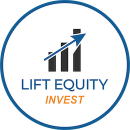Tax Advantages
There are a few significant tax advantages that can be used by your tax professional to help reduce your tax liabilities. These advantages are taken as deductions through accelerated depreciation, cost segregation, and other deductions through the operations of the business. We cannot go at length on these for this article’s purpose, but in a nutshell they produce paper losses against your tax liability to the point where you will owe little to no taxes.
So in multifamily syndications, it makes it much easier for investors to purchase asset heavy items such as the building and construction improvements. These can be used to significantly reduce their tax liability.
Why is this allowed? Because the US government is not in the business of building housing units, but at the same time they realize housing needs for Americans is a very important aspect to the economy. That is why there are tax laws and tax codes that encourage and promote investors to participate in the burden of building, improving, and managing real estate. And if an investor has a bad year or takes a “heavy loss”, there are tax laws and codes giving reduced tax burdens to all of the participating investors. This is something you do not find trading in stocks.
Leverage
More leverage means a greater return on your investment. It’s a matter of simple division and knowing how hard your asset needs to work to give you a desired return.
Simply put, it is easier to acquire an 80% leveraged property asking for a 20% capital raise, versus a 50% leveraged property asking for a 50% capital raise from investors. So it makes sense to invest your money in a syndication deal that is more leveraged because it has a much higher chance of closing and giving you a higher percentage of return.
The principal concept to calculate your return is the cash flow OVER your initial investment; known as your Cash on Cash Return (CoC). So if your initial investment of $50,000 in deal A versus $100,000 in deal B, which one will have a higher chance of achieving and exceeding your desired return? Deal A! In deal A, the property does not have to work as hard as the property in deal B in order to achieve and exceed the desired return.
So before you invest your money in a deal pool, be sure to look at the deal and determine how much leverage is being taken on the property.
Cash Flow
Positive cash flow is the life-blood of a property and what ultimately is given to investors as a return on their investment. A good property can bring in the needed cashflow each year to achieve the advertised return and allow investors to receive their quarterly distributions.
Cash flow can be calculated as gross rental income minus all expenses and cash reserves.
Appreciation
This is the core value of real estate in that the value appreciates each year. For example, a $17 million property purchased today may be worth $20 million five years from now. Of course there are market corrections, but because of land scarcity, population growth, and the need for housing, there will always be a growing appreciation for real estate. Again this means the exit value of the property versus what it was initially purchased for will typically be higher. Allowing you to get your money back and more than likely exponentially grow your wealth by “x” multiple.
Low Risk
Another low risk factor is that real estate is low in volatility. That is because real estate is a lagging indicator to what is going on in the economy. It takes time and a lot of stress before there ever is a correction in the real estate market.
As a passive investor, the risk goes even lower because there is less upfront management to worry about on the property. Such as dealing with tenants, renewing rental contracts, cleaning units, repairing broken utilities, seeking out contractors, managing expenses, managing capital expenditure projects, paying local taxes, producing reports, etc!
Direct Control
This is a huge advantage of real estate investing, you have a lot more direct control over your investment. Nothing is too complex, there are no mysterious mutual funds, and no broker involved. Just the property, the team managing the property, and your determination.
Mortgage Principal Paydown or Interest Only Finance
You can also get a mortgage balance pay down with each monthly payment. A good chunk of that money goes toward the principle and thus increasing your equity ownership. This is sometimes called the “automatic piggy bank.”
Or the property can be involved in interest only financing for the duration of the investment period. This means only the interest on the debt is being paid before the principal is required to be paid 5 or so years down the line. And as you may recall, cash flow is king! This allows for more cash flow and better returns on your investment.
Brick and Mortar Asset
Unlike stocks and bonds, real estate will retain its value because it is a tangible asset. A tangible asset that provides a need for housing and collects on rents. It is also a tangible asset that can have liens placed on, serve as collateral to banks, owe returns to investors, and be held against legal chargebacks. And finally, because of its tangibility it can be assessed a market value and compared upon in the market.
Conclusion
Investing in real estate can be a very rewarding experience and long as you do your research the opportunity will be very beneficial for you in the long run.



